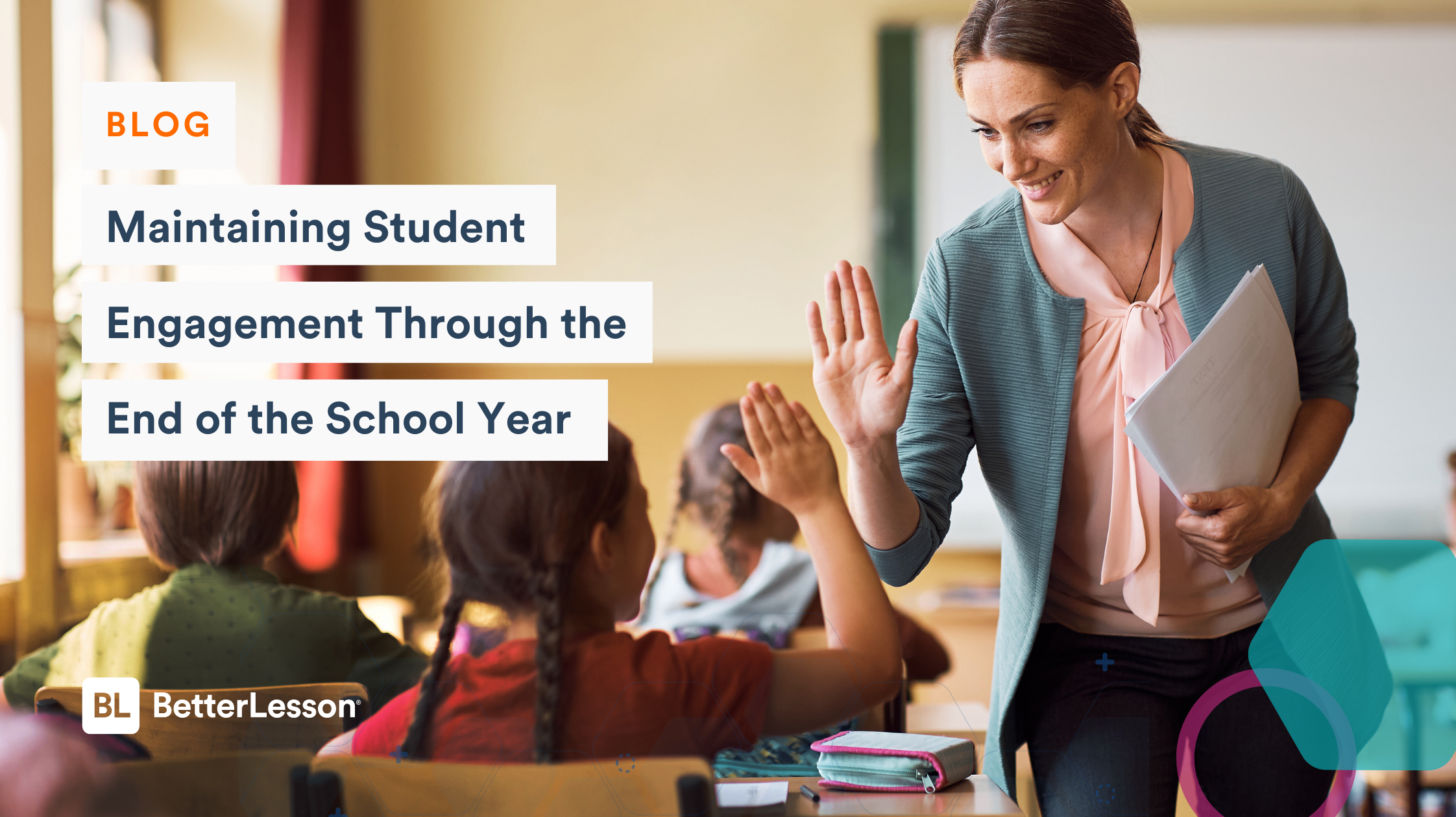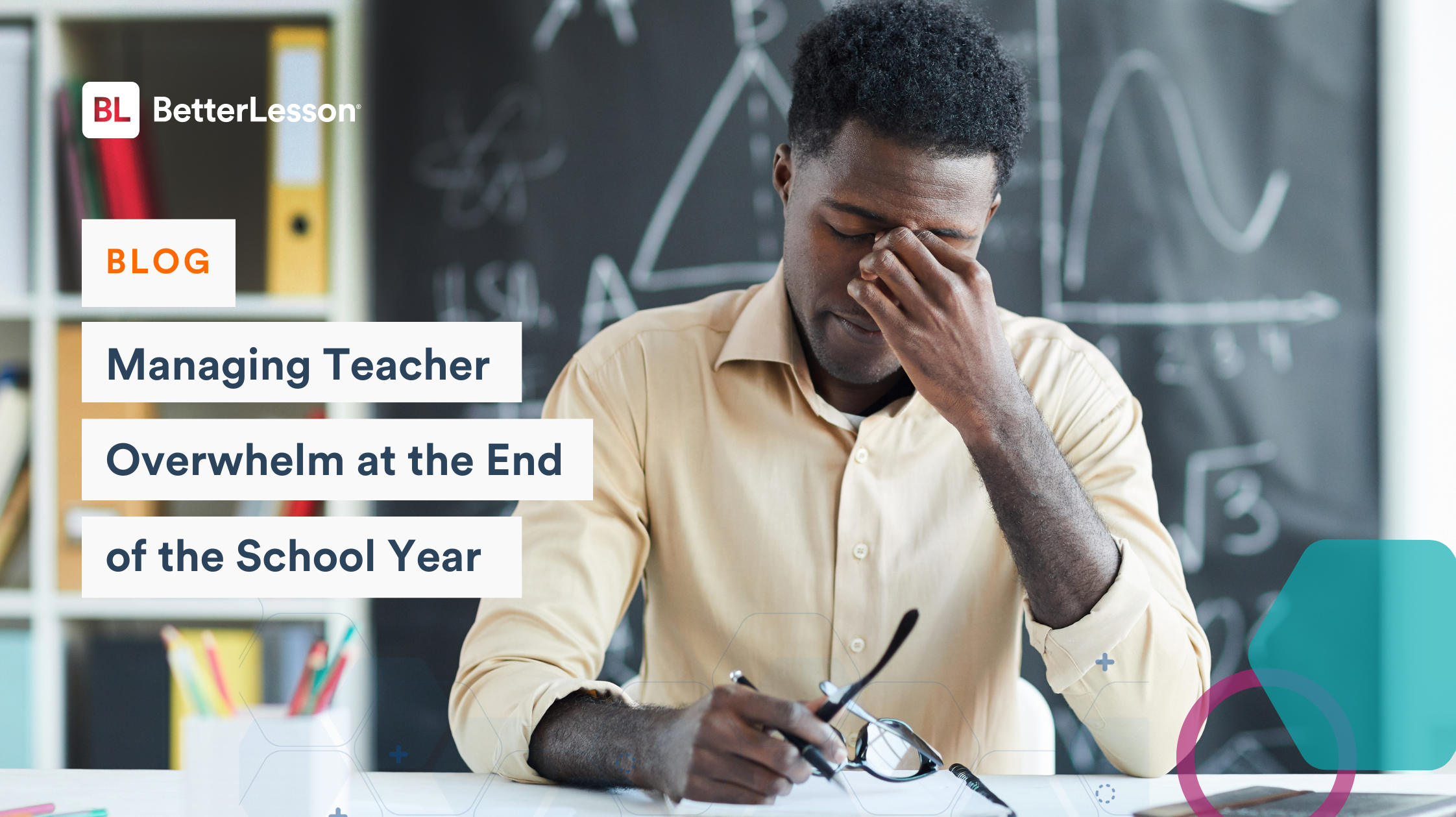The end of the school year is an exciting time; the weather is warming, testing and units are coming to a close, and summer break is approaching. For many teachers, however, this excitement is often paired with stress trying to maintain student engagement while competing against the enticement of summer break.
This time doesn’t have to be stressful for teachers; in fact, it can be fun, generative, and impactful for teachers and students alike!
The close of the school year is an opportune time to create reflection-based projects for your students. These projects are often very engaging for students, tapping into their lived-experiences from the school year, and they can be very beneficial for teachers, providing useful feedback and reflection on your teaching and curriculum.
Below are some reflection-based projects to keep your students actively engaged while the countdown to summer break winds down!
Personal Reflection
The end of the school year often marks significant transitions for students. Whether it’s simply moving to the next grade, transitioning to middle school or high school, or graduating, this time of the year warrants space and structure for students to participate in personal reflection.
Personal reflection projects are an engaging and generative way to end the school year. And they don’t have to require a ton of planning. You can simply provide your students with reflection questions and then offer a list of project mediums, similar to a “Choice Board.”
Here are some examples:
Personal Reflection Question Ideas:
- What moments brought you joy this year?
- What moments made you laugh this year?
- What was the coolest thing you’ve learned this year?
- What were some challenges/hardships from this year? What did you learn from those experiences?
- How have you changed since the start of the school year? How have you stayed the same?
- Looking ahead to next year, what personal goals do you have for yourself?
Project Mediums:
Represent your answers to the personal reflection questions by…
- Creating a Spotify playlist.
- Writing an original poem.
- Writing and composing a song.
- Writing and recording a podcast episode.
- Writing and recording a Youtube video.
- Writing a personal essay.
- Creating a Google slides or Powerpoint presentation.
- Making a comic.
Academic Reflection
Teachers are often required to move from one unit or project to the next with little time for student reflection. Creating intentional time at the end of the school year for students to reflect on and provide feedback on units and projects is a mutually-beneficial activity: students get to engage in academic reflection, reinforcing learning before summer break; and teachers receive critical feedback to inform their planning for the next year.
While there are many ways to facilitate this process, here’s one approach to get you started:
Step 1: Create a list of projects/units from the year. To help jog students’ memories, it can be helpful to include a few key ideas or activities from each project/unit.
Step 2: Ask students to rank the projects/units in order of favorite to least favorite.
Step 3: Provide students with reflection questions. For each project/unit, students should include answers to the following reflection questions:
For each unit/project…
- What did you like most (lessons, activities, discussions, assignments, etc)?
- What is something you learned that stuck with you?
- What did you like least?
- What could have made this unit/project more engaging/interesting?
Step 4: Create a presentation. Students can then compile their list and reflections to create a presentation.
Write Letters to Younger Students
Asking your students to write letters of advice to younger students is a great way to maintain engagement and to compile resources that will benefit the success of your future students! You can ask your students to write letters for the students in the grade below them to receive on the first day of school for the following year. These letters should be grounded in their own experiences and include things like advice, tips, strategies, or resources that promote success.
Here are sample directions for this assignment:
You will be writing a letter of advice for the incoming _____ graders! Now that you’ve completed _____ grade, think about the lessons you’ve learned from your successes and your challenges. What do you wish someone had told you before entering ____ grade? What strategies, resources, or tips would have benefitted you before starting ____ grade? What advice do you have for how to be successful in ____ grade?
Reflect on your answers to these questions and compose a one-page letter for the incoming ____ graders to read at the start of next school year!
Write Letters to Yourself
Writing a letter to your future self is a fun, engaging activity that gives students space to reflect on the previous year and imagine what the future could hold. With this activity, teachers first need to decide when students should open or receive their letter. This helps students understand the scope of “future.” (Are we talking a year from now, four years from now, or ten years from now?!). Students could open their letters at the end of the following school year, when they’re transitioning middle school or to high school, or–especially if they are graduating seniors–after a prescribed number of years (i.e. in five years).
Once you’ve decided how far into the future your students should open their letters, you can provide a list of reflection questions to help guide their writing:
- How would you describe your life in this present moment? How would you describe yourself?
- What lessons in life have you learned so far?
- Who are some of the most important people in your life right now? What impact have these people had on you?
- What do you want to remind yourself at the time that you open this letter?
- What goals do you have for your future? What do you hope to have accomplished by the time you open this letter?
A Year in Performance
A fun and collaborative way to end the year is to have your students create skits or performances to represent key concepts they learned in your class. This is another excellent way to reinforce learning before summer break through a playful and reflective activity.
Here are steps you can take to facilitate this project:
Step 1: Compile a list of projects/units from the year. To help jog students’ memories, it can be helpful to include a few key ideas or activities from each project/unit.
Step 2: Put students into groups of 3-5. Size of groups will depend on class size and the number of projects/units.
Step 3: Assign each group one project/unit from the year. Depending on class size and the number of projects/units, groups may be assigned multiple projects/units.
Step 4: Instruct each group to create a 2-5 minute skit or performance that represents this project/unit. Encourage your students to be creative with their skits! They could include acting, singing, or a combination of the two. Skits/performances should also include a written script that each group turns in.
Step 5: Perform! Each group will then perform their skit for the class. This should happen in sequential order, from the first unit/project of the year to the last.
Ask Your Students
If you’re still wondering how to maintain engagement through the end of the school year, simply ask your students! They might have wonderful ideas that wouldn’t cross your mind otherwise.
Below are some questions to help your students brainstorm ideas that can lead to end-of-year projects:
- What topics related to (name of academic subject) do you wish we learned this year but haven’t yet?
- What were your favorite activities from this school year?
- What projects, community-building activities, or lessons would you like to participate in before the year ends?
- What fears/worries/concerns do you have for next school year? How can I help make you feel less anxious about next school year?
To learn more about student engagement strategies, you can explore BetterLesson’s instructional strategies and lesson plans. If your school or district is ready to create a thorough student engagement plan, schedule a call with BetterLesson today to learn how we can collaborate and support!
Get in Touch







